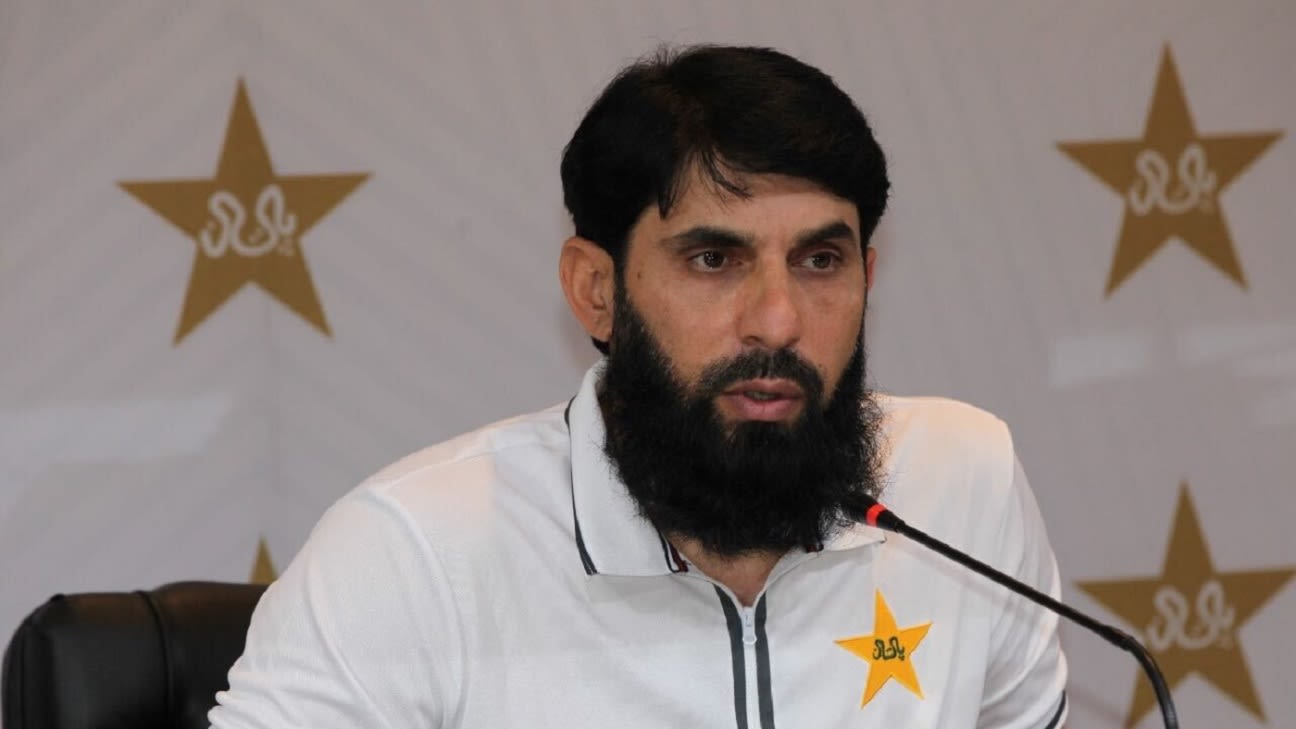
Pakistan had a clear idea of what they wanted from their middle order all through the ODI series against South Africa, but until Hasan Ali's 32 off 11 in the final ODI they didn't get it.
That it was Hasan, a much-improved batsmen but essentially a lower-order player, who provided the kind of power-hitting Pakistan wanted from the men above him points to a problem essentially unresolved, leaving head coach Misbah-ul-Haq with answers to find.
Pakistan's top order made up for it, with a rich run of performances. Fakhar Zaman found his groove to end up as the leading scorer with 302 runs, including that 193. Babar Azam amassed 228 runs at 76, followed by Imam-ul-Haq's 132 at 80.98. In all three games, the trio contributed but nobody in the middle order could build on their platform; not in making the chase more comfortable in the first ODI, not in providing Fakhar with a partnership in the second and not to build on a formidable start in the third ODI (until Hasan's late, late burst). Asif Ali made 21 in two games, Shadab Khan got 46 in two, Faheem Ashraf made 17 in three, Sarfraz Ahmed 13 in one and Danish Aziz 12 in two.
"Things we see going forward is that in our middle and lower-middle order we need consistent runs, as well as power so that you can score big runs," Misbah said, a day after Pakistan won the ODI series 2-1. "These days 325 isn't a safe total and we have seen that in the last two games when 320 felt less. So 330 and 350 are just normal, [so] it's necessary to have a capacity in your middle and lower order. The way the top order is setting the innings up, that needs to be capitalised on for a big finish. There is a simple and clear method in white-ball cricket, to put on 200 runs in T20s and 350 in ODIs and that's the demands of the time.
"It's not like you have to go wild and can only do that by slogging, but conditions, rules, and pitches these days allow you to score the bulk of runs with proper cricketing shots. All you have to do is utilise the 50 overs at the fullest and 330 runs will come easily, which is a competitive score. That's the way forward and pattern we have to follow."
The ODI series win on South African soil is Pakistan's second in recent years, and Australia are the only other team with two series wins in South Africa. Misbah, coach now, was captain the first time it happened, in 2013. But he played down the achievement and looked ahead to his next goal of winning more often in overseas conditions, with England his next target.
"Whatever you achieve, it isn't your final destination," Misbah said. "In the bigger picture, with an extensive goal, every team playing in the world wants to sit in the top three positions in every format. The target is to keep on evolving and keep winning from one series to another. We have a series against England in England before the T20 World Cup, so that is the next step: to do well and win overseas. It is something that always gives you belief and confidence.
"With every successful step, like winning here in South African conditions, it gives you enough to get better going forward. The important positive is the way our current lot in the top order is playing in these conditions and the biggest plus is our fast-bowling battery is outstanding."
On Azam as captain, Misbah felt he is still learning: "For a captain, it's really important to lead from the front. He just goes in and controls the game. In the first ODI, South Africa did their best to attack him with Kagiso Rabada and Anrich Nortje but the way he counter-attacked gave self-belief and confidence [to him as a captain]. All this helps him in decision-making and improves his overall ability.
"Though he doesn't have much experience as captain, this performance will allow him to get better. The way he has worked on his game in white-ball cricket or even Tests shows he is a good learner. He has cricketing sense and with more experience as captain, he will definitely improve his strategic moves."
Umar Farooq is ESPNcricinfo's Pakistan correspondent















 Phone: (800) 737. 6040
Phone: (800) 737. 6040 Fax: (800) 825 5558
Fax: (800) 825 5558 Website:
Website:  Email:
Email: 






